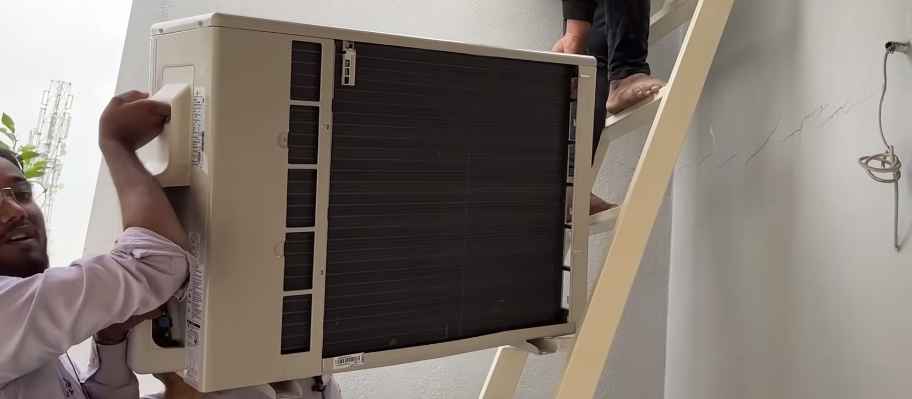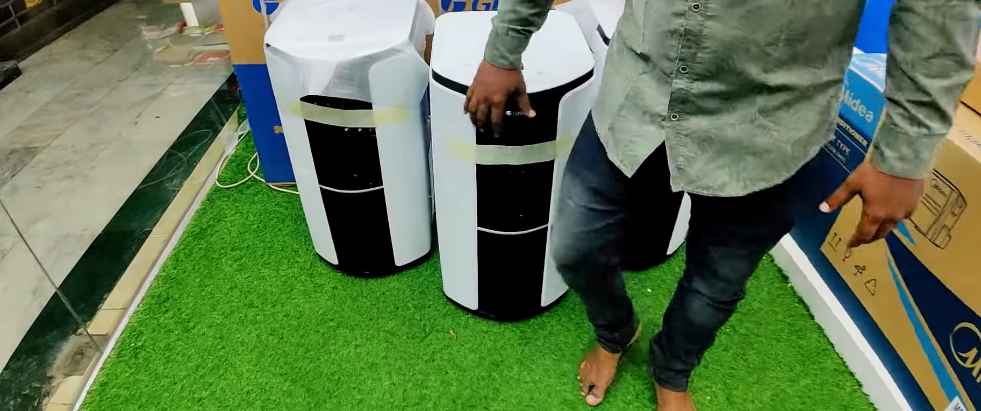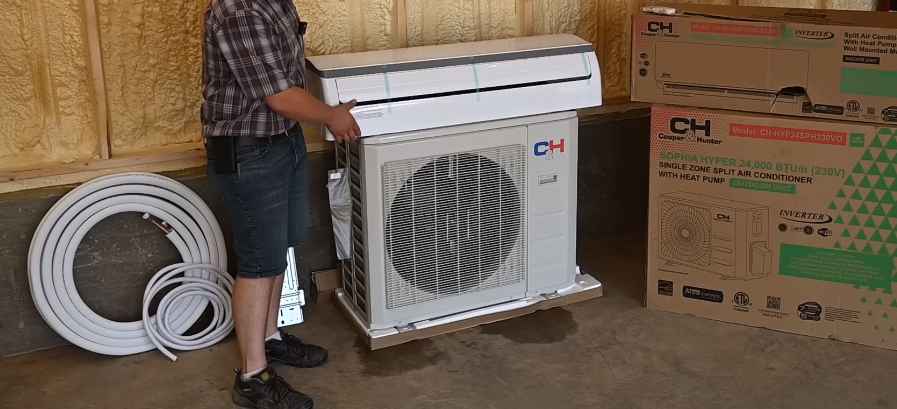Welcome to our comprehensive guide on choosing the perfect air conditioner for your home.
At Smart AC Solutions, we understand the importance of a comfortable living space, especially during the hot summer months.
With so many options available in the market, finding the right air conditioner can be overwhelming.
In this article, we will walk you through the key factors to consider, provide expert tips, and help you make an informed decision. Let’s get started!

Understanding BTUs
Before we delve into the details, let’s first understand the concept of BTUs (British Thermal Units).
BTUs are a measure of the cooling capacity of an air conditioner.
It represents the amount of heat an AC can remove from a room in one hour.
The higher the BTU rating, the more cooling power the air conditioner has.
Assessing Your Cooling Needs
To ensure you choose an air conditioner that effectively cools your space, it is crucial to assess your cooling needs accurately.
Here are some factors to consider:
Room Size
The size of your room plays a significant role in determining the BTU capacity required for effective cooling.
Measure the length, width, and height of the room and use the following formula to calculate the approximate BTU requirement:
BTU:
BTU = (Room Length x Room Width x Room Height) / 5
Insulation and Sunlight
Consider the level of insulation in your room and the amount of sunlight it receives.
Well-insulated rooms require less cooling, while rooms with poor insulation and significant sunlight exposure may need higher BTU ratings.
Room Function
Different rooms have different cooling requirements.
For example, a kitchen may generate more heat due to cooking appliances, while a bedroom might require a quieter air conditioner for a good night’s sleep.
Take into account the specific functions of each room when selecting the appropriate air conditioner.
Choosing the Right Air Conditioner Type
Now that you have a clear idea of your cooling needs, it’s time to explore the various types of air conditioners available.
Each type has its unique features and advantages. Let’s discuss the most common ones:
1. Window Air Conditioners
Window air conditioners are compact units designed to fit in a window or a slot in an exterior wall.
They are suitable for cooling individual rooms or small spaces.
These units are cost-effective, easy to install, and provide efficient cooling for moderate-sized areas.

2. Split Air Conditioners
Split air conditioners consist of two units: an indoor unit and an outdoor unit.
The indoor unit is mounted on a wall or ceiling, while the outdoor unit is placed outside the building.
They offer excellent cooling performance, energy efficiency, and quiet operation.
Split ACs are ideal for cooling multiple rooms or larger spaces.

3. Portable Air Conditioners
Portable air conditioners are versatile units that can be easily moved from room to room.
They come with a venting kit to exhaust hot air through a window or a drop ceiling.
These units are suitable for apartments or rental properties where permanent installation is not possible.
Portable ACs provide convenience and flexibility but may have slightly lower cooling capacities compared to window or split units.

4. Ductless Mini-Split Air Conditioners
Ductless mini-split air conditioners are similar to traditional split units but do not require ductwork.
They consist of an outdoor unit connected to one or more indoor air handling units.
These systems are highly efficient, customizable, and offer zoned cooling, allowing you to set different temperatures in different areas.
Ductless mini-split ACs are perfect for homes without existing ductwork or for room additions.

Additional Features and Considerations
Beyond the basic cooling function, modern air conditioners come with various additional features and considerations.
Here are a few worth considering:
Energy Efficiency
Look for air conditioners with high Energy Efficiency Ratio (EER) ratings.
Higher EER values indicate better energy efficiency, which can lead to lower energy bills in the long run.
Noise Level
If noise is a concern, opt for air conditioners with lower decibel ratings.
Manufacturers often provide information about the noise levels of their units, helping you choose a quieter option.
Air Quality
Some air conditioners come with built-in filters and purifiers, improving indoor air quality by removing dust, allergens, and odors.
Consider this feature if you or your family members have respiratory sensitivities.
Conclusion
Choosing the perfect air conditioner for your home involves careful consideration of your cooling needs, room size, insulation, and other relevant factors.
By following the guidelines in this article, you are well-equipped to make an informed decision.
Remember to choose an air conditioner that provides optimal cooling efficiency, fits your budget, and meets your specific requirements.
Stay cool and comfortable all summer long with the right air conditioner for your home!
We hope this guide has been helpful in your search for the ideal air conditioner.
For more information and a wide selection of high-quality air conditioning products, visit [Our Company] today!